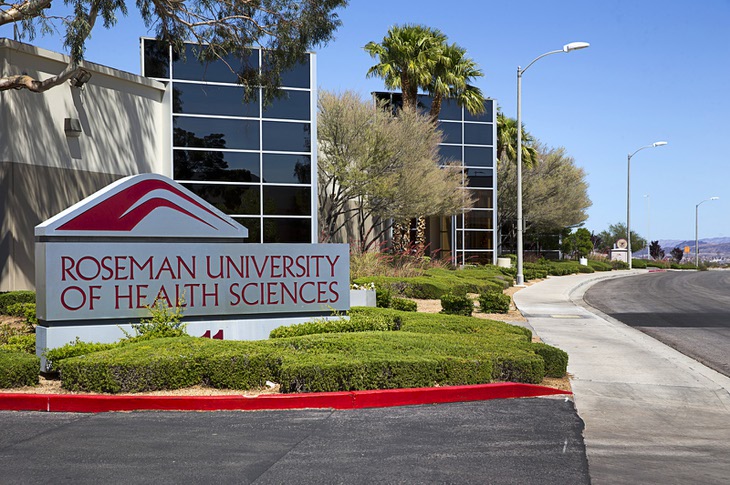Contrary to what many people think, there are only about 2,000 medicines approved by the Federal Drug Administration for people. And a quarter of those are biological products, or “biologics,” including vaccines, gene therapy, tissues and similar medicines—like insulin, for example.
Using unique technology, Las Vegas-based startup Heligenics Inc. aims to improve the performance of biologics. Since its launch seven years ago, the company has produced at least 25 new drugs.
“When [people] take insulin, they just take the raw form that comes out of the human, but it’s well-known that through a little bit of fancy protein-engineering, you can make a form of insulin that performs way better—maybe it lives in your blood five times as long,” said Martin Schiller, founder and CEO of Heligenics.
According to the company’s website, Heligenics tests how all the genetic variants of a given gene “functionally impact, en masse, live human cells.”
“The biggest discovery in drug development is called High Content Screening, introduced about four decades ago, and all drug manufacturers (have used) it since it was introduced,” said Schiller, who is also the executive director of the Nevada Institute of Personalized Medicine at UNLV. “But the gap here is that there’s no High Content Screening for biologic drugs—and that’s what we have the unique capability of doing.”
To carry out its mission, Heligenics has partnered with Roseman University to work out of the nearly 70,000 square feet of wet lab and office space at its Summerlin campus.
A wet lab is specifically designed for bioscience, says Jeffery Talbot, the vice president for research and dean of the College of Graduate Studies at Roseman.
“We think that, partnering with companies like Heligenics, we can provide an even richer educational environment for our students—a training environment where, for example, graduate students can participate with the company in the work that they are doing, which gives them cutting-edge skills, real-life experience, even before they graduate,” Talbot said. “We think those things are critical.”
Southern Nevada increasingly has opportunities to contribute to the evolving biotech industry, which Talbot emphasized is fast-growing.
“Heligenics—that’s a very exciting company at an exciting time of their growth,” he said. “And they were being courted by entities outside of Nevada to relocate. And by providing them space at our campus that met their needs, we could take a startup company—a Nevada startup—to keep it in Nevada, so it can grow in Nevada.”
Tina Quigley, president and CEO of the Las Vegas Global Economic Alliance, said that in addition to the wet lab space at Roseman, Southern Nevada’s workforce is also attractive to biotech companies.
“And, of course, they are a diversification from … hospitality and gaming, which means that as they arrive here—to do an analogy—we are diversifying our 401(k) portfolio,” she said. “We are diversifying and becoming a more secure economy, so that way when we do have bubbles and bursts with our primary industry, it isn’t felt as strongly as it has been in the past.”
The biotech industry is growing globally, she said, and Las Vegas is poised to be a competitor within it.
Though some people may consider a biotech company based in Southern Nevada rather than Silicon Valley to be at a disadvantage, Schiller said Heligenics’ location allows it to influence the growing health care system in Las Vegas.
There’s a couple of different paths that Heligenics could walk from here, Schiller said, including taking its first drug to market and using the guaranteed revenue from that product to fund the additional growth of the company.
The ideal outcome would be to take a few drugs forward and partner with existing drug manufacturers to have the same impact that a company like Pfizer has, he said, so that Heligenics’ technological approach to drug discovery becomes industry-wide as quickly as possible.
“Our company and our advisers and directors and colleagues all think that, within a decade, all pharmaceutical companies will be using our approach to make new drugs,” Schiller said. “So we think we’re going to have a very big impact.”
Click HERE to subscribe for free to Vegas Inc’s BizClick newsletter. Stay up to date with the latest business news in Las Vegas sent directly to your inbox each Monday.
